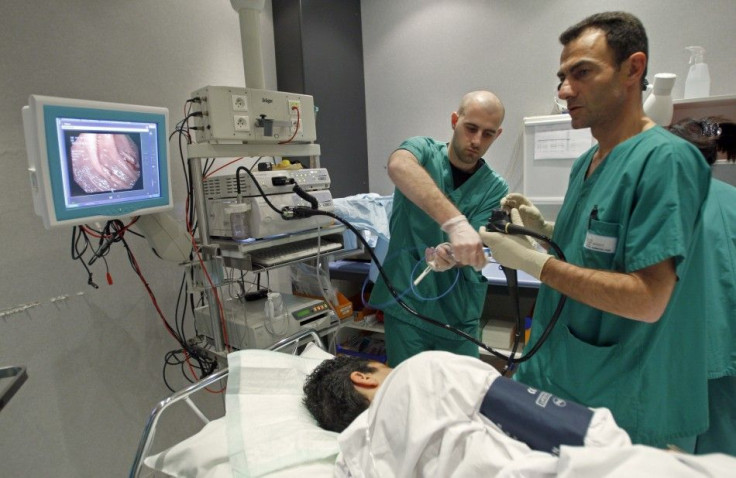Study Provides First Direct Evidence of Colonoscopy Saving Lives

A new study has provided direct evidence for the first time showing that colonoscopy lowers the rate of cancer death by half.
The study, reported in the New England Journal of Medicine, provides direct evidence on how the less popular preventive test can save lives.
The colonoscopy procedure involves endoscopic examination of the large bowel and the distal part of the small bowel with a CCD camera or a fiber optic camera on a flexible tube. With the help of the procedure, polyps as small as one millimeter or less can be removed, following which they can be studied with the aid of a microscope to determine if they are precancerous or not.
For the study, around 2,602 patients were tested by researchers at the Memorial Sloan-Kettering Cancer Center, New York. They found that after the process, there was around 53 percent reduction in risk of death from colon cancer.
It is a strong study that reiterates what many of us in the field had suspected, Bloomberg quoted Scott Kopetz, a colon cancer specialist at the University of Texas MD Anderson Cancer Center in Houston as saying. It is one of the first that gives us an estimate on the amount that the death rate has been reduced.
Although, previous research has indicated that by removing suspicious polyps like adenomas, incidence of cancer can be prevented to a great extent. However, earlier research has not been able to find out if that resulted in reduction in death rates.
For the study, the researcher tracked patients who underwent the procedure between 1980 and 1990 and had the polyps removed.
The Wall Street Journal reported that after a median follow-up of nearly 16 years, 1,246 patients had died from other causes, including 12 who died from colon cancer. Other studies indicated that 25.4 colon-cancer deaths were expected among 2,602 people in the general population, leading to the conclusion that there was 53 percent reduction in mortality rates.
The Centers for Disease Control and Prevention (CDC) mentions that reducing the number of deaths from colorectal cancer depends on detecting and removing precancerous colorectal polyps as well as detecting and treating the cancer in its early stages. When colorectal cancer is found early and treated, the 5-year relative survival rate is 90 percent. Because screening rates are low, less than 40 percent of colorectal cancers are found early.
© Copyright IBTimes 2024. All rights reserved.





















